On March 13, the Ho Chi Minh City National Assembly Delegation held a workshop to contribute ideas to the draft Law on Digital Technology Industry.
National Assembly Delegate Nguyen Thi Le, Deputy Secretary of the City Party Committee, Chairwoman of the Ho Chi Minh City People's Council, attended the workshop. Deputy Head of the Ho Chi Minh City National Assembly Delegation Ha Phuoc Thang and Deputy Head of the Ho Chi Minh City National Assembly Delegation Nguyen Tran Phuong Tran chaired the workshop.
At the workshop, delegates suggested that it is necessary to continue reviewing and perfecting the concepts of word explanations to fully explain, ensure the best, clear meaning, and compliance with domestic and international laws.
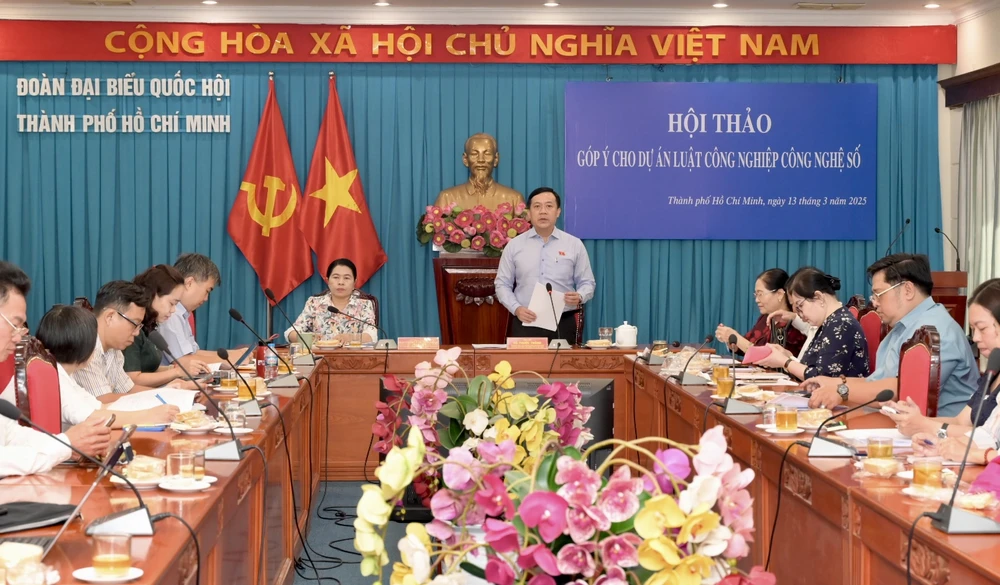
In particular, it is important to distinguish between the concepts of information technology and digital technology. In addition, the draft law needs to supplement and perfect the digital technology industry development policy, regulations on digital assets, controlled testing mechanisms, regulations on the semiconductor industry, and regulations on artificial intelligence to ensure feasibility, control risks, and develop these fields to meet the country's development requirements in accordance with the Party's policies and in accordance with Vietnam's conditions.
Delegates said that the law needs to clearly define the boundary between digital technology and information technology, avoiding overlap with current laws. Dr. Nguyen Vinh Huy, Vice President of the Ho Chi Minh City Business Association, analyzed that the concept of “digital technology industry” is still broad, easily overlapping with fields such as telecommunications and cyber security.
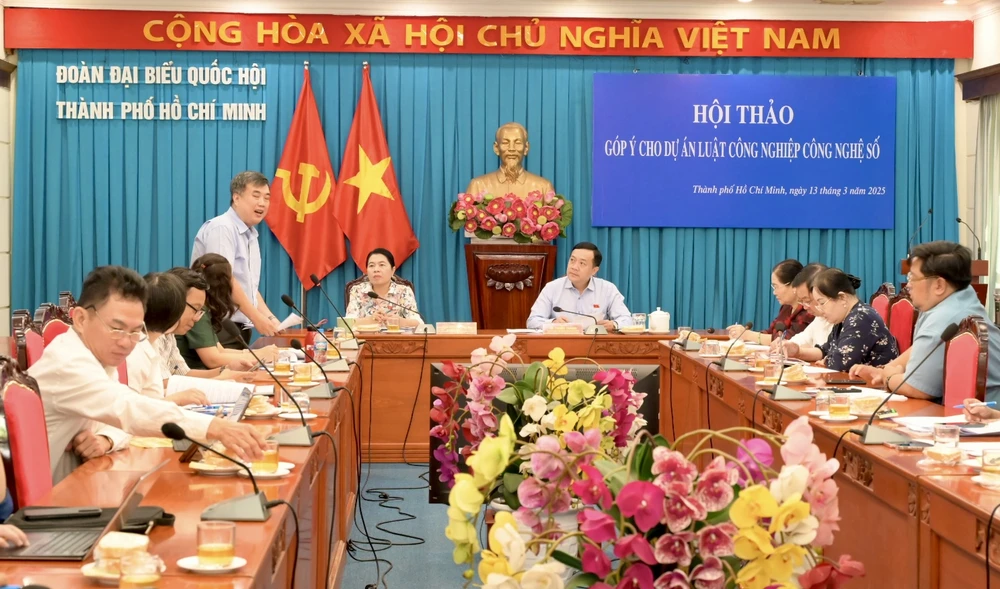
He proposed that the law should clearly cover areas such as artificial intelligence (AI), big data, blockchain, cloud computing and the Internet of Things (IoT). This will help clearly define the scope of the law, avoiding overlap with current legal documents.
Regarding human resource training, Dr. Nguyen Vinh Huy emphasized that in order to develop digital technology, it is necessary to have policies to support businesses to cooperate with training institutions to provide high-quality human resources. He also proposed adding tax incentives and financial support for startups, as well as mechanisms to encourage research and technology transfer.
Commenting on the incentive policy, Deputy Head of the Department of Industrial Management (Department of Industry and Trade of Ho Chi Minh City) Nguyen Minh Tri said that the draft law needs to unify the subjects eligible for personal income tax incentives. Currently, the regulations still limit incentives to concentrated digital technology zones or key technology fields such as semiconductors and AI.
Deputy Head of the Inspection and Legal Department, Ho Chi Minh City National University, Thai Thi Tuyet Dung, also commented that the provisions in the new draft law only focus on students, and need to be expanded to learners to include many levels of training. Regarding policies to support human resource development, there should be credit policies, partial tuition support, and covering study and living expenses for Vietnamese students, lecturers, and experts studying, researching, and exchanging academic knowledge about digital technology domestically and abroad.
Source: https://www.sggp.org.vn/de-xuat-bo-sung-uu-dai-thue-ho-tro-tai-chinh-cho-doanh-nghiep-khoi-nghiep-trong-linh-vuc-cong-nghe-so-post785787.html




![[Photo] Prime Minister receives a number of businesses investing in Ba Ria-Vung Tau province](https://vrviet.vn/vietnam/resource/IMAGE/2025/3/20/068bd1ddb87d45fdbc413938e67a82e4)
![[Photo] President Luong Cuong receives Ambassador of the Dominican Republic Jaime Francisco Rodriguez](https://vrviet.vn/vietnam/resource/IMAGE/2025/3/20/f64a359081824c3080b2b4890d87bcb7)
![[Photo] General Secretary To Lam meets with Vietnamese and Chinese students studying abroad in different periods](https://vrviet.vn/vietnam/resource/IMAGE/2025/3/20/2bae76339cc64f938f15da2a403fb346)
![[Photo] Lost in the fairy-tale-like pear flower garden in Na Hang, Tuyen Quang](https://vrviet.vn/vietnam/resource/IMAGE/2025/3/20/b85ec7408bbb40f8be763f3d4f585c54)
![[Photo] Conference approved the Draft Report on inspection results for the Standing Committee of Hung Yen Provincial Party Committee](https://vrviet.vn/vietnam/resource/IMAGE/2025/3/20/a5b3bf15b9c34d138756cc01eafceb4d)



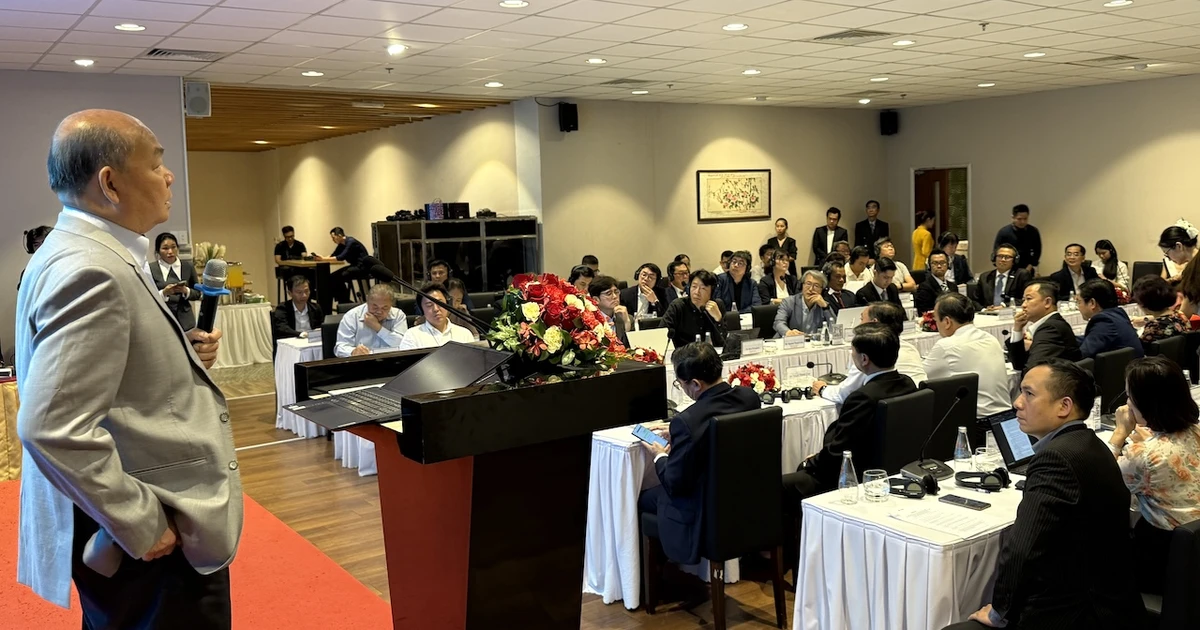


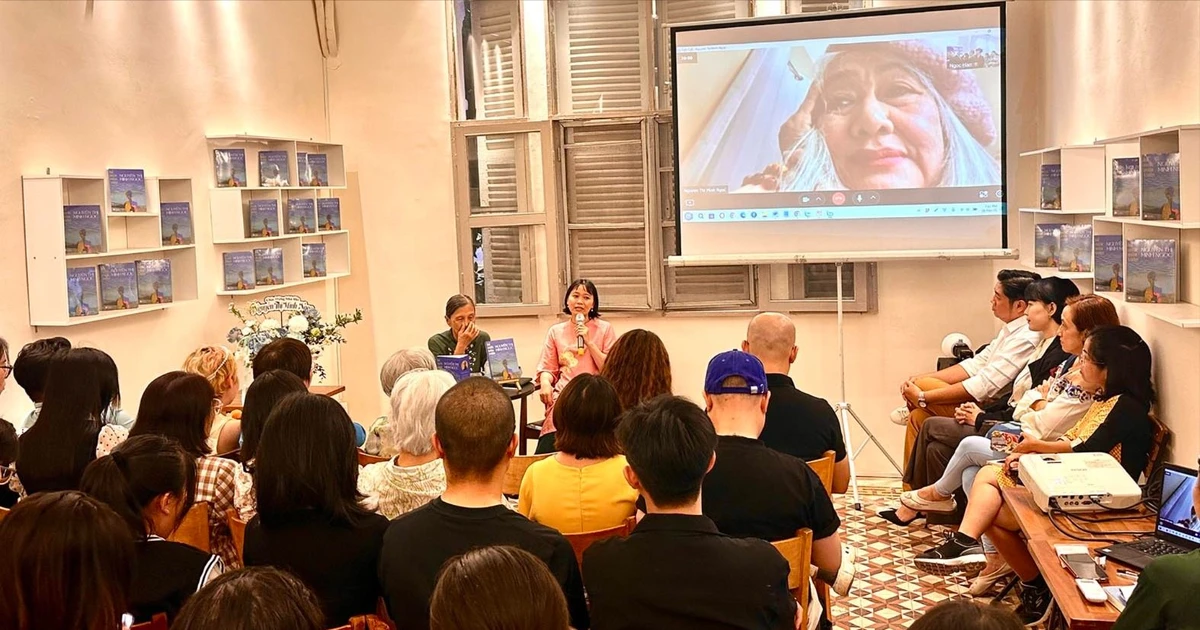










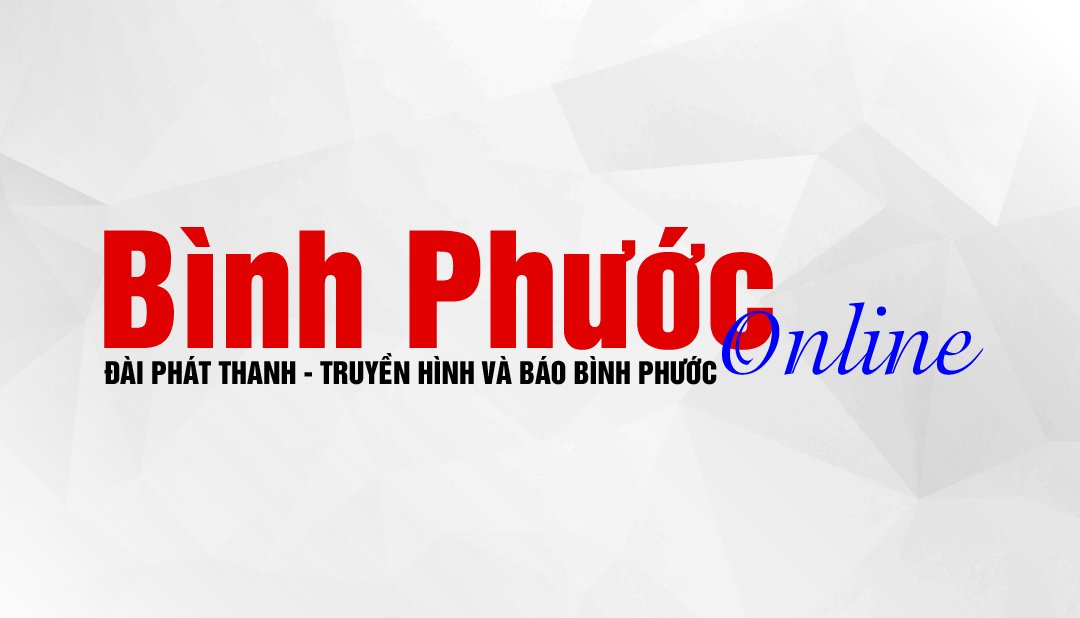
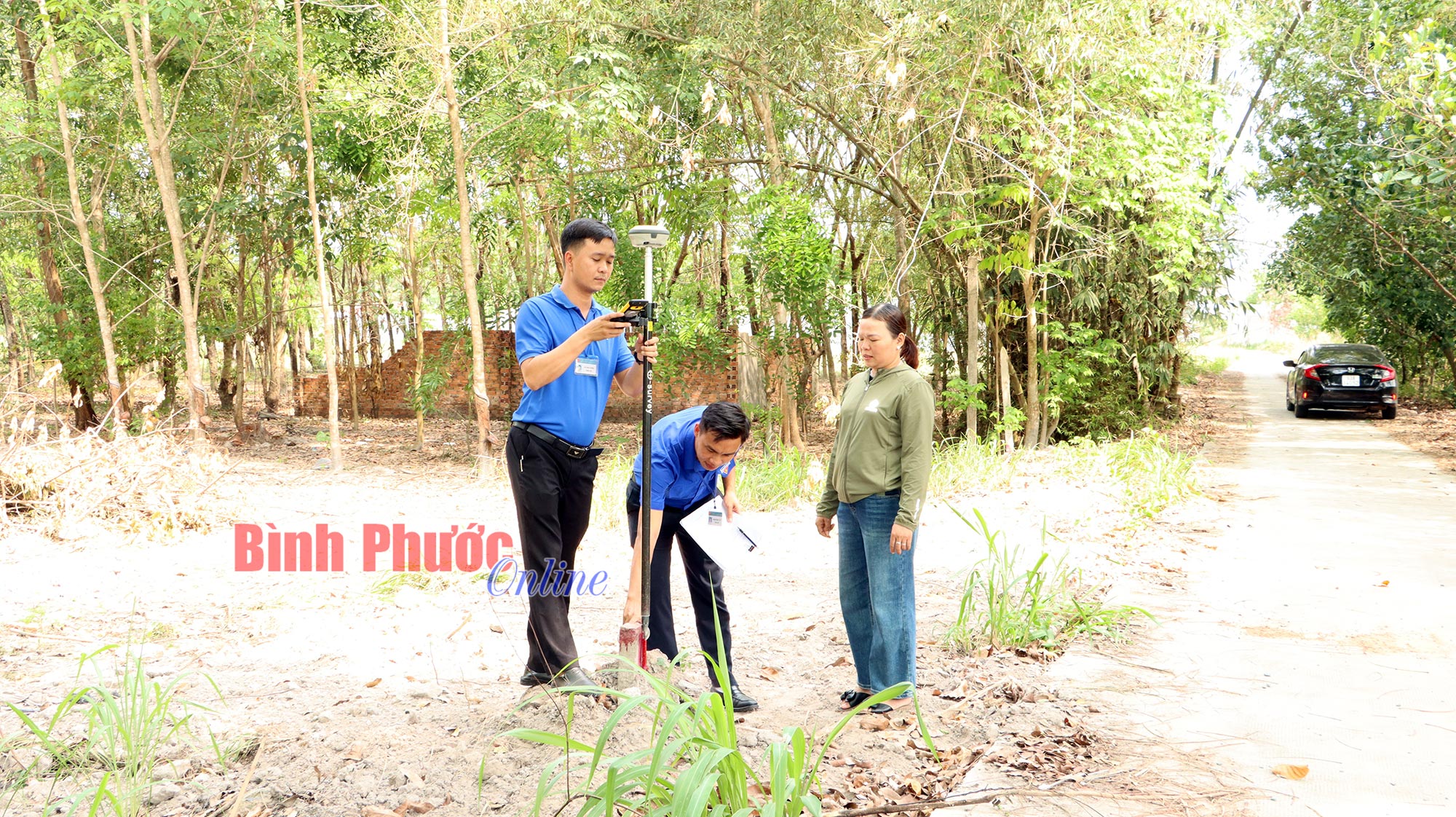
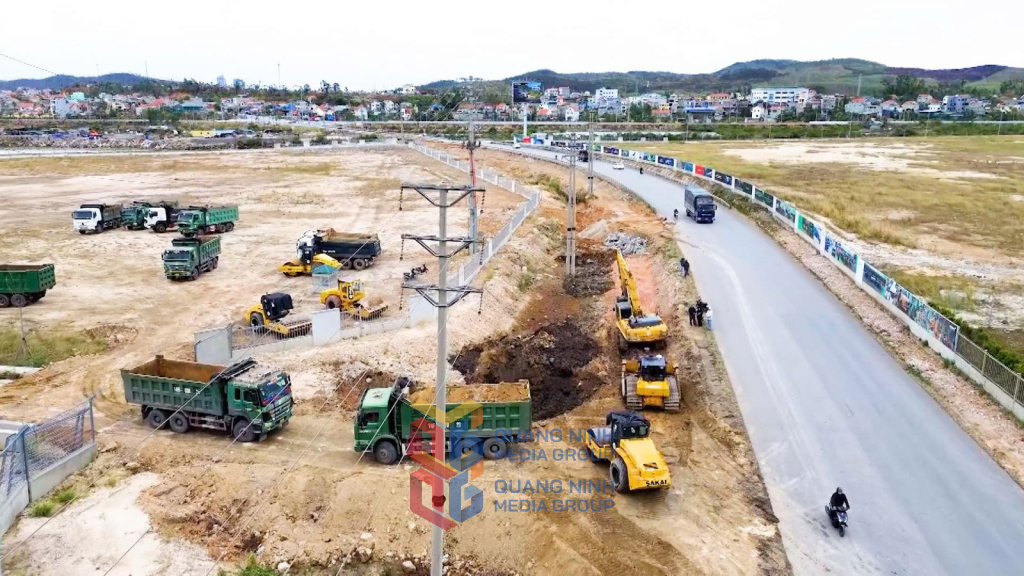

Comment (0)